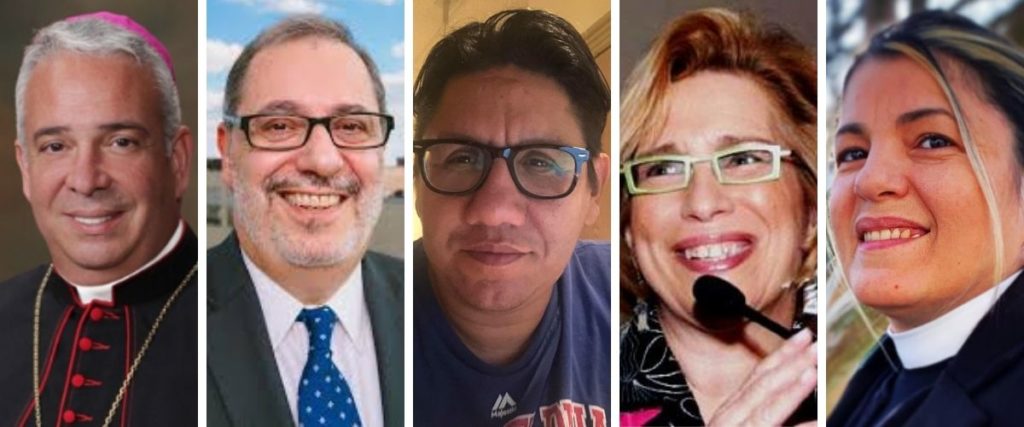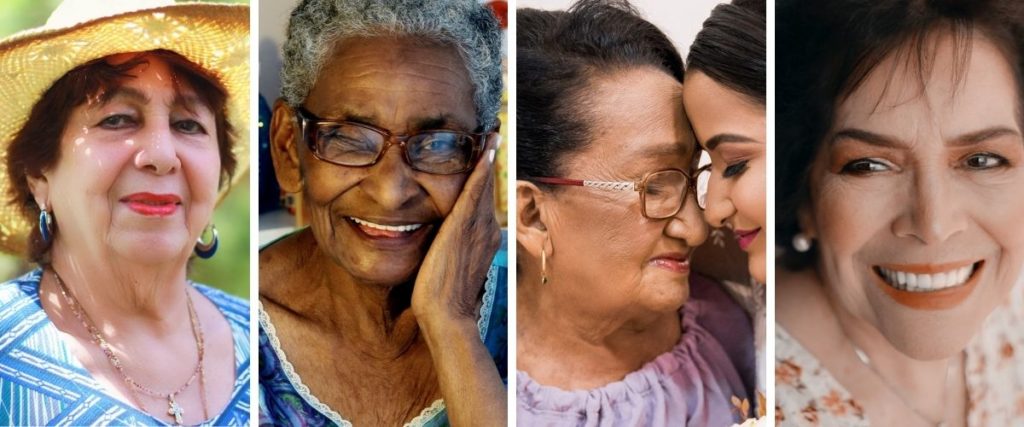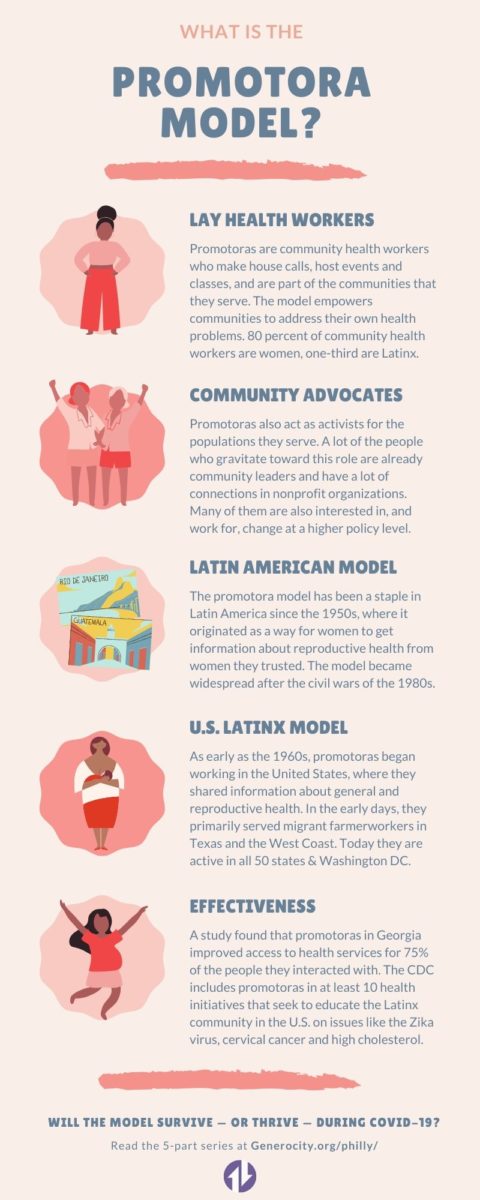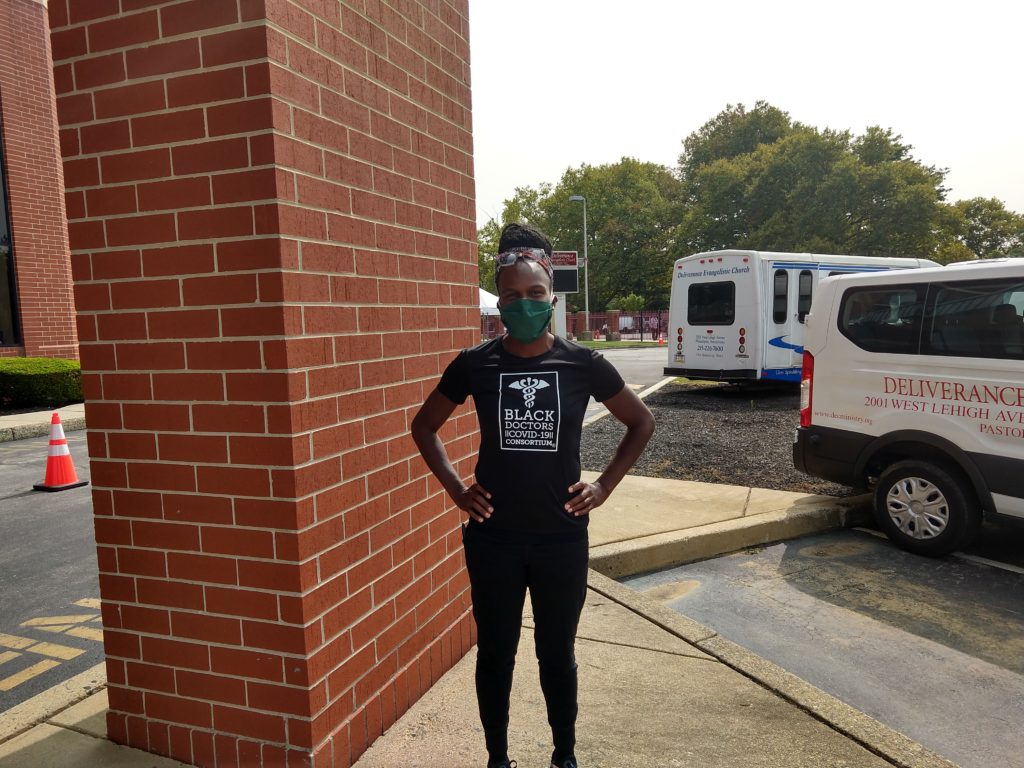Opinion: Want Latinxs to get the COVID vaccine? You’ve got to look beyond the obvious
 January 12, 2021
Category: Featured, Long, Purpose
January 12, 2021
Category: Featured, Long, Purpose
Let’s get the stats out of the way first.
- According to the CDC, Latinxs are 1.7 times more likely to contract COVID-19 and 2.8 times more likely to die from it than white non-Latinxs.
- In a survey cosponsored by the NAACP and UnidosUS and released in late 2020, 73% of Latinxs know someone who has been diagnosed with COVID-19, and 52% know someone who has been hospitalized or died from it.
- We are 21% of all essential workers (and up to 40% of essential workers toiling in industrial, commercial, residential facilities and services), and 25% of us live in multigenerational households, so we have significantly elevated risk of exposure.
- Just shy of 14% of Mexican-Americans over 18 have diabetes (12% of Puerto Ricans), and 13.6% of Puerto Ricans over 18 have asthma (5.3% of Mexican-Americans) — two of the underlying conditions that make us more susceptible to COVID-19.
And still, we are very reluctant to be vaccinated.
Many have — accurately and importantly — reported on the significant role that access to healthcare, lack of accurate information, language barriers and concerns about revealing documentation status have played in making Latinxs wary of receiving the vaccine. But that doesn’t entirely convey the level of mistrust within our communities.
The study I mentioned earlier, which was conducted before any vaccine was available, and had a very small sample size of Latinxs (258), revealed that only 34% of Latinxs mostly or completely trusted that a vaccine would be safe, and only 40% mostly or completely trusted that a vaccine would be effective. While those numbers are significantly higher than those of African American respondents in the same survey (14% trusted in the vaccine’s safety and 18% trusted in its effectiveness), they don’t represent a vote of confidence.
“[With the Latinx population] there is this misconception that once we vaccinate you, you are going to become infertile,” said Dr. Joseph Varon, chief of staff at United Memorial Center in Houston, during the Jan. 5 episode of BBC OS Conversations (Go to minute 32.09 to hear this.)
An oddly specific fear, no? .Well, there’s a reason for that.
1. Understand how the past informs the present
Disculpa aceptada, confianza retirada. Apology accepted, trust withdrawn, as the Spanish saying goes.
The US government, medical researchers, even civic and nonprofit organizations with reputations for “benevolence” have all had a part in a sordid history of involuntary sterilizations, contraceptive experimentation and other medical harms which have left Latinx communities (be they native-born or immigrant) leery of vaccinations, prescribed medications, and medical institutions in general.
Here is a timeline of some of deceptive and often coercive projects and/or experiments that the US government — as well as pharmaceutical companies, nonprofits and NGOs — has engaged in, cloaked in the language of public health, public good and progress.
The racist preoccupation with Latinx procreation rates have underpinned everything from eugenic sterilization laws at the turn of the 20th century to detention and deportation policies in the 21st century — something many native-born and immigrant Latinas have experienced, first-hand or within their familial orbit.
That personal experience of punitive and/or unethical medical procedure is something older Gen X, Boomer and Silent generation Latinas, in particular, pass along to our millennial and Gen Z friends and family. I’ve heard countless stories about la operación from older Puerto Rican friends, and I myself have had conversations with my daughter about why Kat von D‘s anti-vaxxer stance could be rooted in her Mexican-American familial history.
Well before COVID made its appearance, Latinxs showed a marked reluctance to participate in clinical trials. You can draw a direct line from the despicable history outlined in the timeline above to the fears expressed. In a 2016 article about Mexican-American perspectives on participation in clinical trials that appeared in Contemporary Clinical Trials Communications, the authors wrote:
Many focus group participants expressed fears and concerns about clinical trials. Across all groups, they seemed generally concerned about being “used” in experiments, feeling like a guinea pig. One participant said, “I probably wouldn’t do it because I would feel like I’m a guinea pig, and I’m taking some medicine that I don’t even know.” […] Fears of experimentation were associated with distrust of research, as several participants expressed concerns about being “infected with a disease,” “injected with a virus,” or “diagnosed with something I don’t have.”
I’d argue that the same historically grounded fear undergirds this stat from the 2020 NAACP/UnidosUS surrvey: A full 43% of Latinxs believe the government can rarely/never be trusted to look after their interests.
So, what do we do about this?
2. Get Latinx mothers and grandmothers onboard
In addressing vaccine hesitancy because of historically exploitive medical experimentation and treatment, take a page from those who study how to market to the US Latinx consumer market: reach the women.
Marketers assert that “the Spanish-dominant Latina controls a significant portion of Hispanics’ purchasing power because they are often in charge of deciding what their family spends money on.” And according to a Nielsen report from 2013, 86% of Latinas say they are the primary decision makers in their households.
As it happens, these household deciders are likely to be the adult daughters and granddaughters, nieces and grandnieces, primas and primas-hermanas, of those whose experiences of la operación or the Californian coerced sterilizations or population control efforts in Latin America are personal. They’ve absorbed medical mistrust from conversations like the ones I mentioned I’ve had with my friends and daughter.
To get them onboard with COVID-19 vaccination efforts requires the same level of deep trust and conversational style as one has with family, and luckily in Philadelphia we have the perfect model for this: the promotora model.
The promotoras de salud from Puentes de Salud and promotores de justicia from New Sanctuary Movement of Philadelphia have already pivoted to encompass COVID-19 education and assistance in their work — which is very much in the conversational, personal style needed to break through this intergenerational trauma.
Other efforts, led by the Welcoming Center for New Pennsylvanians and the IBelong group which hold regular, virtual conversations and English language practice sessions that foster information and resource sharing, can also be great places to break through vaccine hesitancy.
The NAACP/UnidosUS survey offers that in promoting vaccine uptake in the Latinx community “Latinx elected officials in one’s community are more likely to be trusted than white elected officials, efforts to promote uptake should leverage voices from within the Latinx community and should reinforce the notion that vaccination is a responsibility that helps the Latinx community at large.”
District 7 City Council member María Quiñones-Sánchez told Politico that she’s doing just that. “The message has to come from people they trust. I’ve [appeared] on Spanish media almost daily,” she told reporter Laura Barrón-López.
Quiñones-Sánchez is performing an important service by doing so. Still, my research has made me a bit pessimistic about the efficacy of conveying the message via governmental institutions or institutional messengers, particularly when you are hoping to reach older Latinxs. For a more efficacious trust-building, we may need a little faith.
3. Take a leap of faith
According to the Pew Research Center survey “Trends in religious composition and attendance among Hispanic US adults” that includes data through 2018, 47% of all Latinxs attend a religious service at least once a month, and 51% attend several times a year. An earlier survey from Pew notes that for 59% of Latinxs, religion is a very important part of life. As it is across all demographics, the majority of Silent Generation, Baby Boomers and Gen Xers all identify as religious.
Religious leaders, then, may be the key to dispelling vaccine hesitancy in Latinx communities across Philadelphia. Moreso if they are Latinx themselves and have the trust of their communities.

From left to right: Archbishop Nelson Pérez, Rev. Luis Cortés, Rev. Adán Mairena, Rev. Bonnie Camarda, and Rev. Jessie Alejandro. (Courtesy photos)
Archbishop Nelson Pérez, Rev. Luis Cortés, Rev. Adán Mairena, Rev. Bonnie Camarda, and Rev. Jessie Alejandro, among others, could all play a vital role in reducing vaccine hesitancy by addressing the topic with their congregations from the pulpit, securing transportation for congregants to get to vaccination sites, and using social media to post videos of when they, themselves, get vaccinated.
Latinx religious leaders, like African American religious leaders in Philadelphia, have worked hard to get COVID-testing to their congregants and communities, but their efforts have been missing an essential component: the Black Doctors COVID-19 Consortium.
4. Adapting a successful model of medical outreach to communities
When Dr. Ala Stanford spoke to Generocity contributor Brandon Dorfman in September 2020, she talked about how systemic racism and injustice manifests in healthcare, with health professionals too often blaming their patients for high blood pressure, obesity, and poor nutrition rather than advocating for them and asking how they can help.
Stanford founded the Black Doctors COVID-19 Consortium to address the needs of African Americans in a culturally competent way, and to provide coronavirus testing in the neighborhoods were there was none. The Consortium deployed a mobile COVID-19 testing unit to provide barrier free testing, and soon will be administering the COVID-19 vaccine in the community for Phase 1B.
And, as has been the way with so much of the work of African American leaders in the city, non-Black Latinx community members have benefitted from the Consortium’s work, and from Dr. Stanford’s commitment to serving all the residents of the underserved neighborhoods where COVID-19 testing and vaccination is most urgent.
That there hasn’t been a comparable effort from Philadelphia Latinx doctors is both depressing and infuriating.
Depressing, because as Generocity contributor Lynette Hazelton discovered while researching an October 2020 piece about Latinx youth affected by COVID-19, while there are Spanish-speaking doctors at Puentes de Salud in South Philly and Esperanza Health Center in eastern North Philly, there are few Latinx doctors on the staff of these important Latinx healthcare hubs. This is not a recipe for health justice.
Infuriating, because in a city with multiple and sizeable university hospitals, there should have been any number of Latinx doctors working to adapt Dr. Stanford’s model to serve the various distinct Latinx communities across the city — with equal foresight and dedication as the Consortium has. I haven’t heard of any, if you have, please drop me a line to tell me about them so I can celebrate their efforts here at Generocity.
But until I hear differently, I consider this not only a failure of imagination on the part of Philly’s Latinx doctors and health professionals, but a failure of will.
Do we want Latinxs to get the COVID-19 vaccine? Time for all of us to step up.
Project
COVID-19 coverageTrending News













